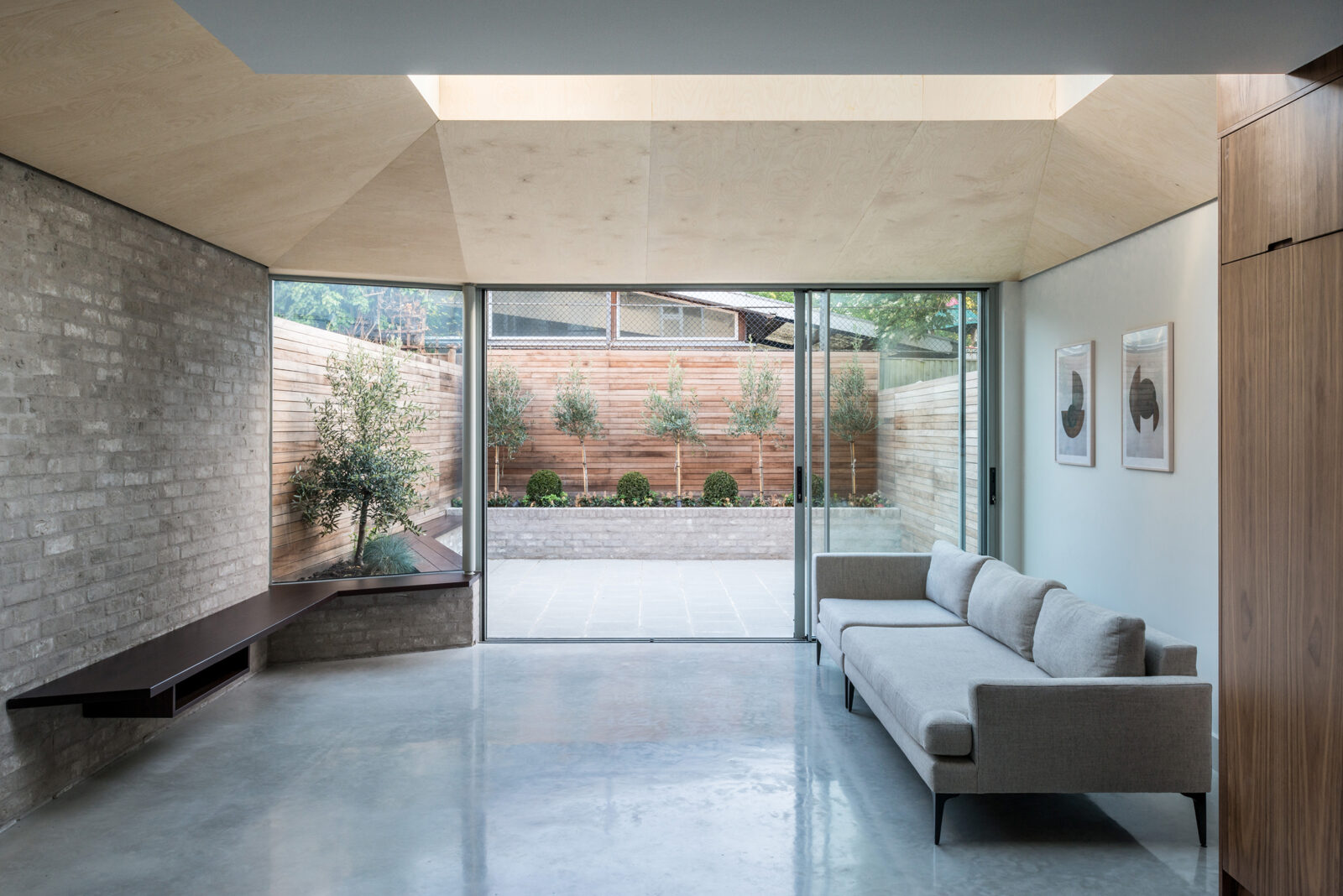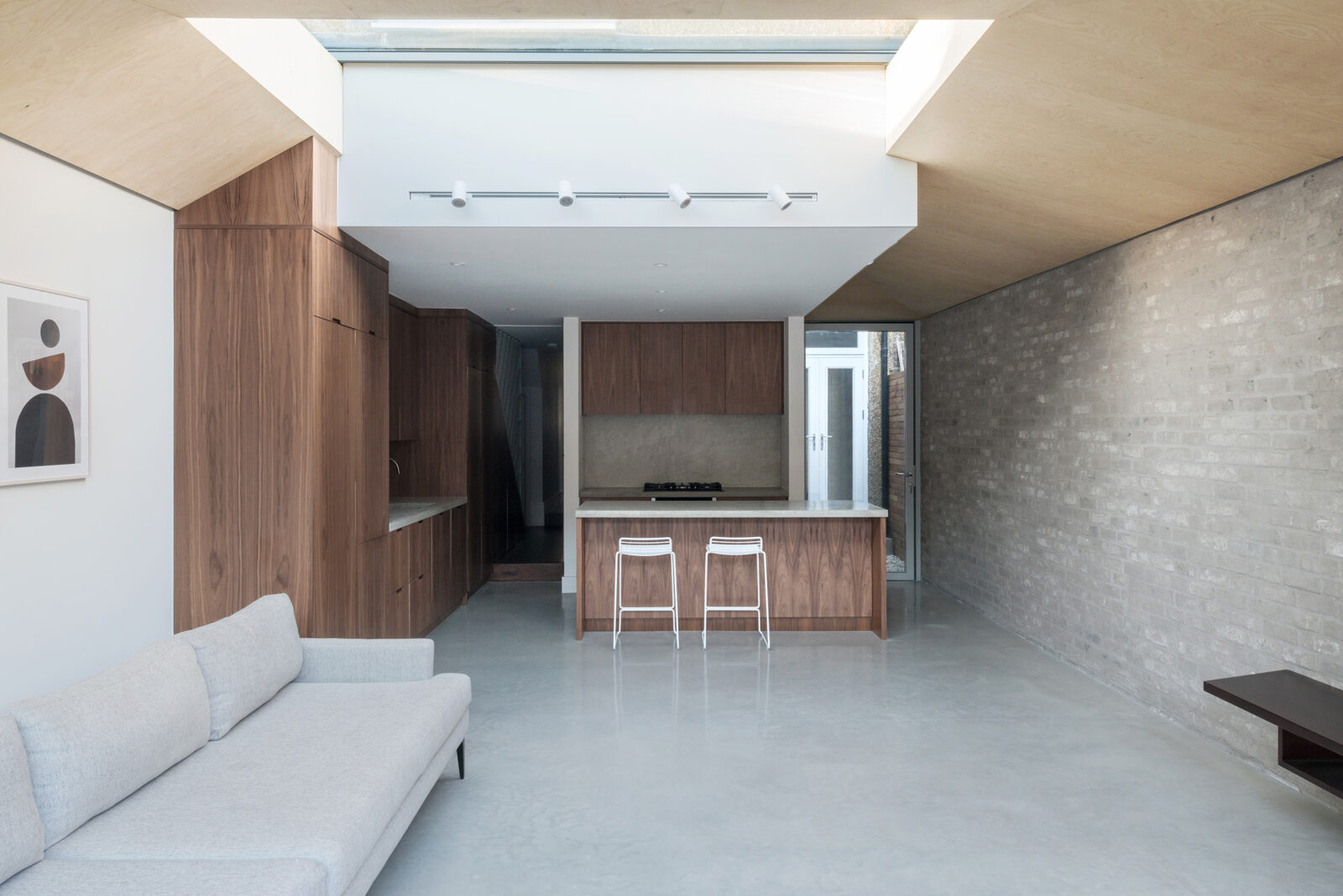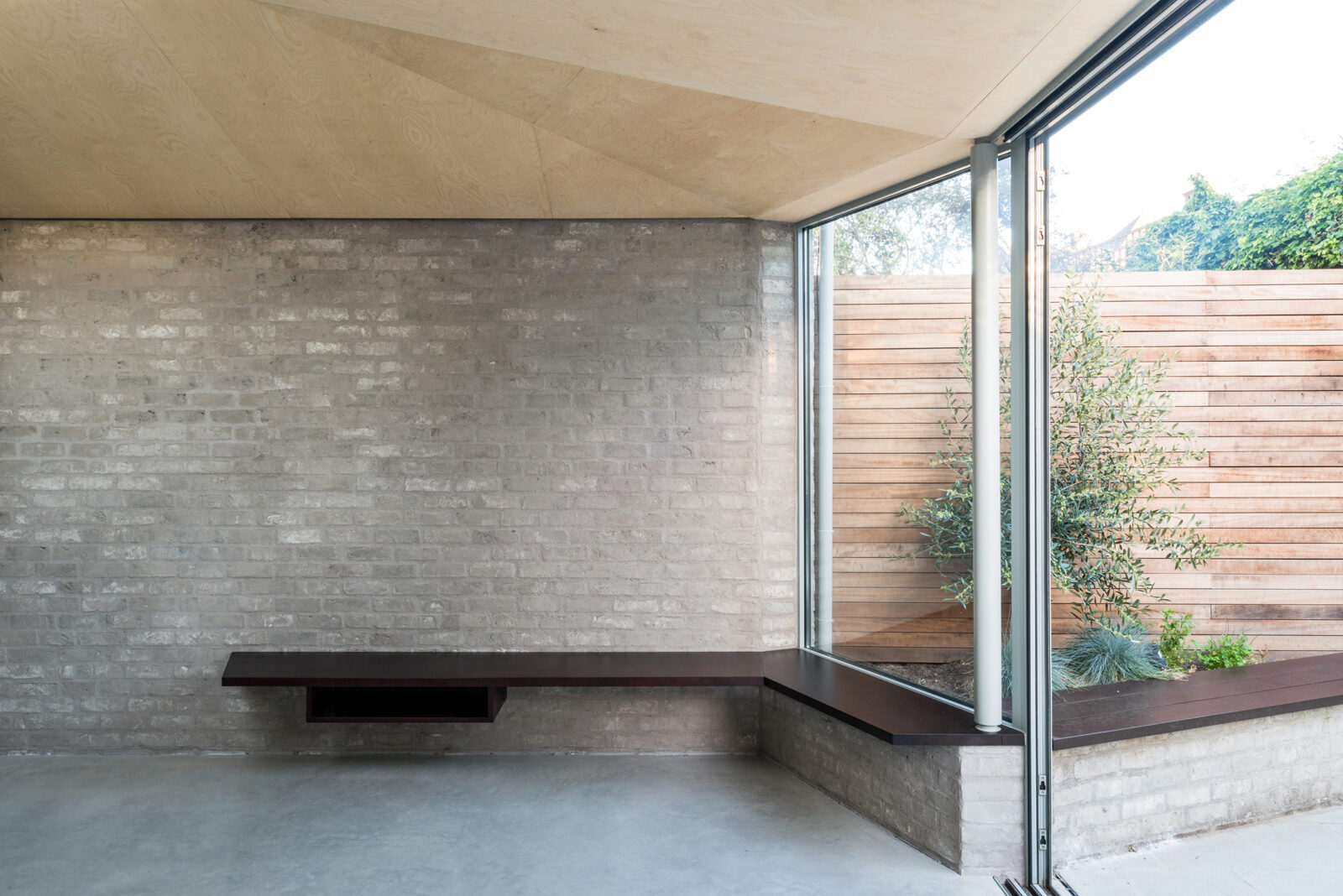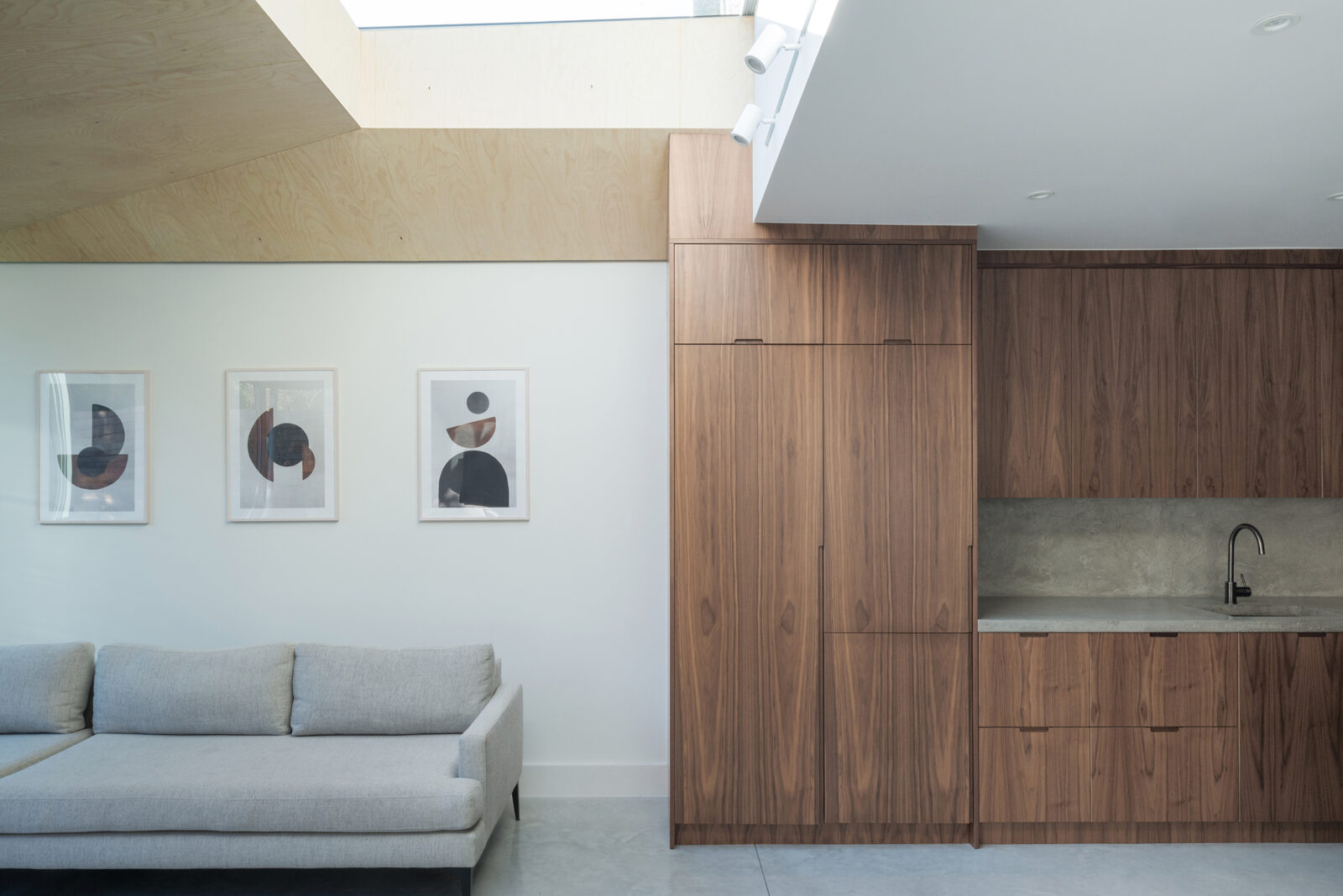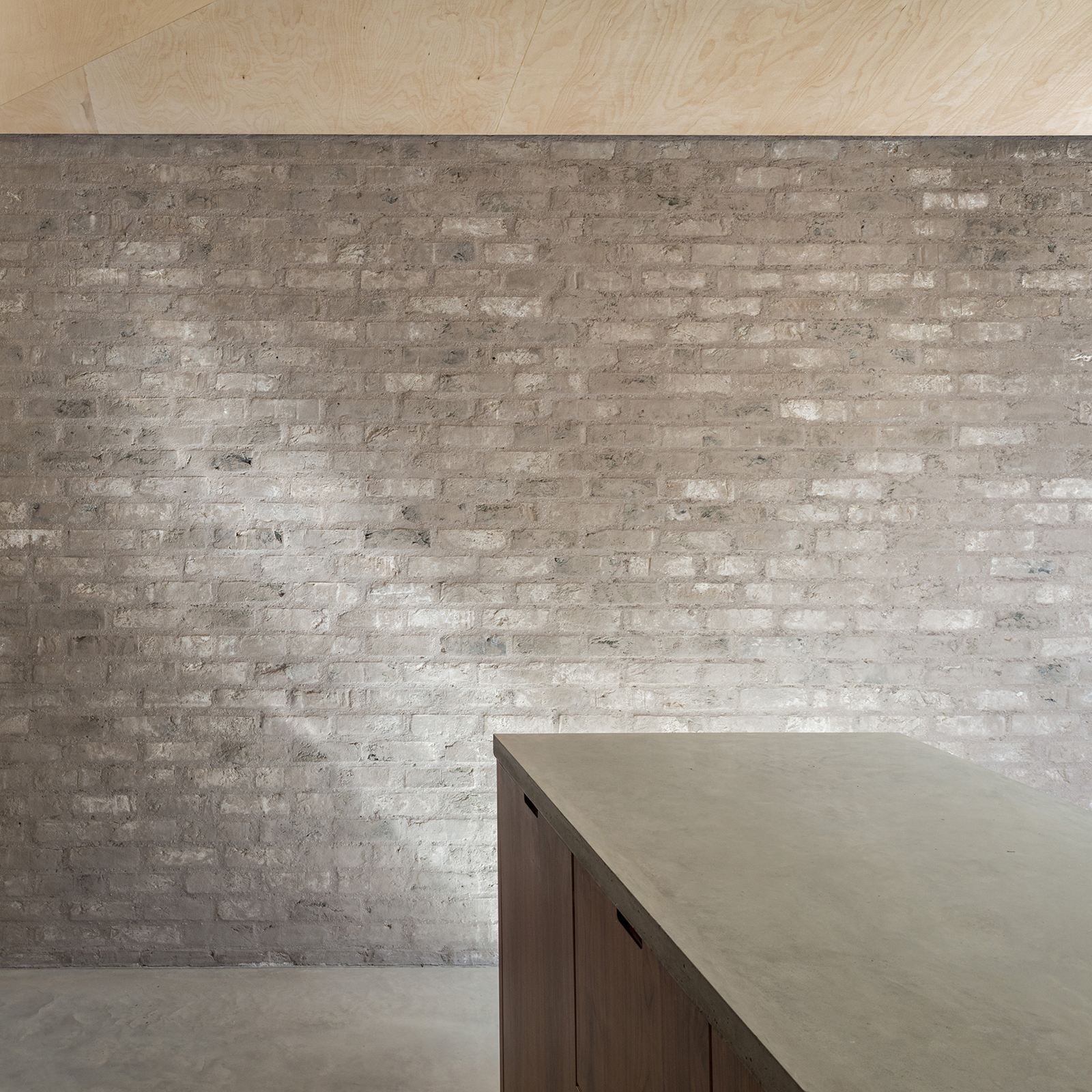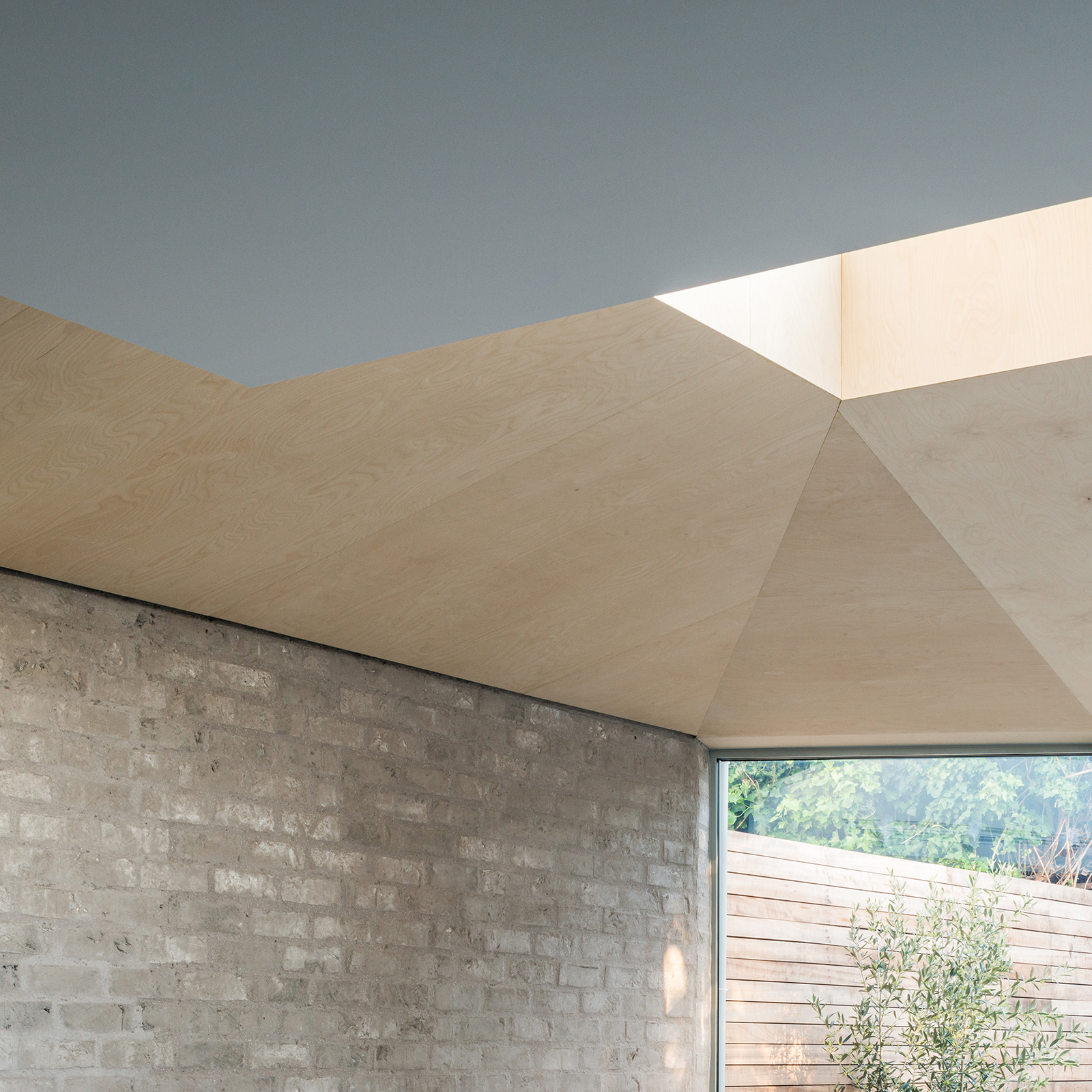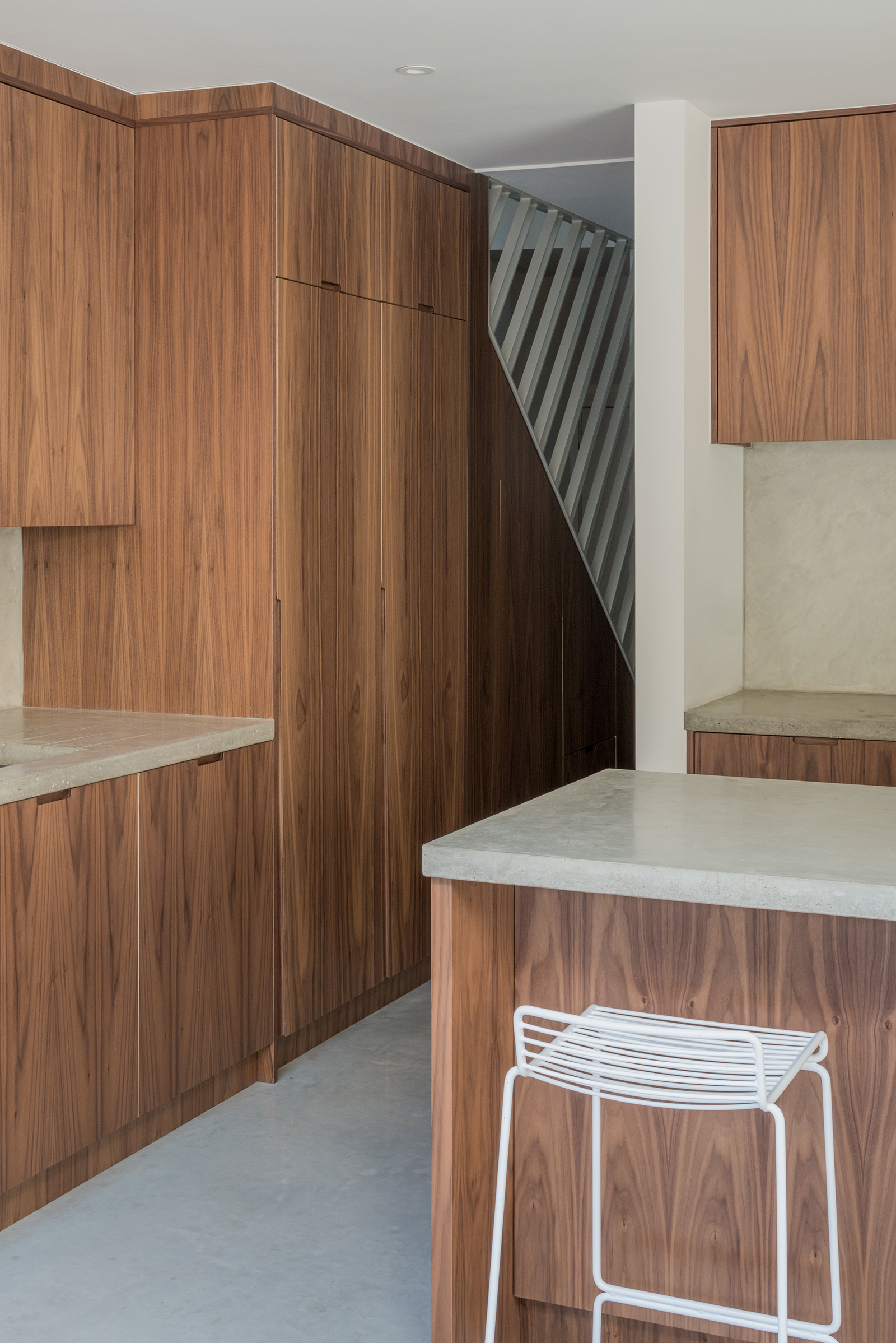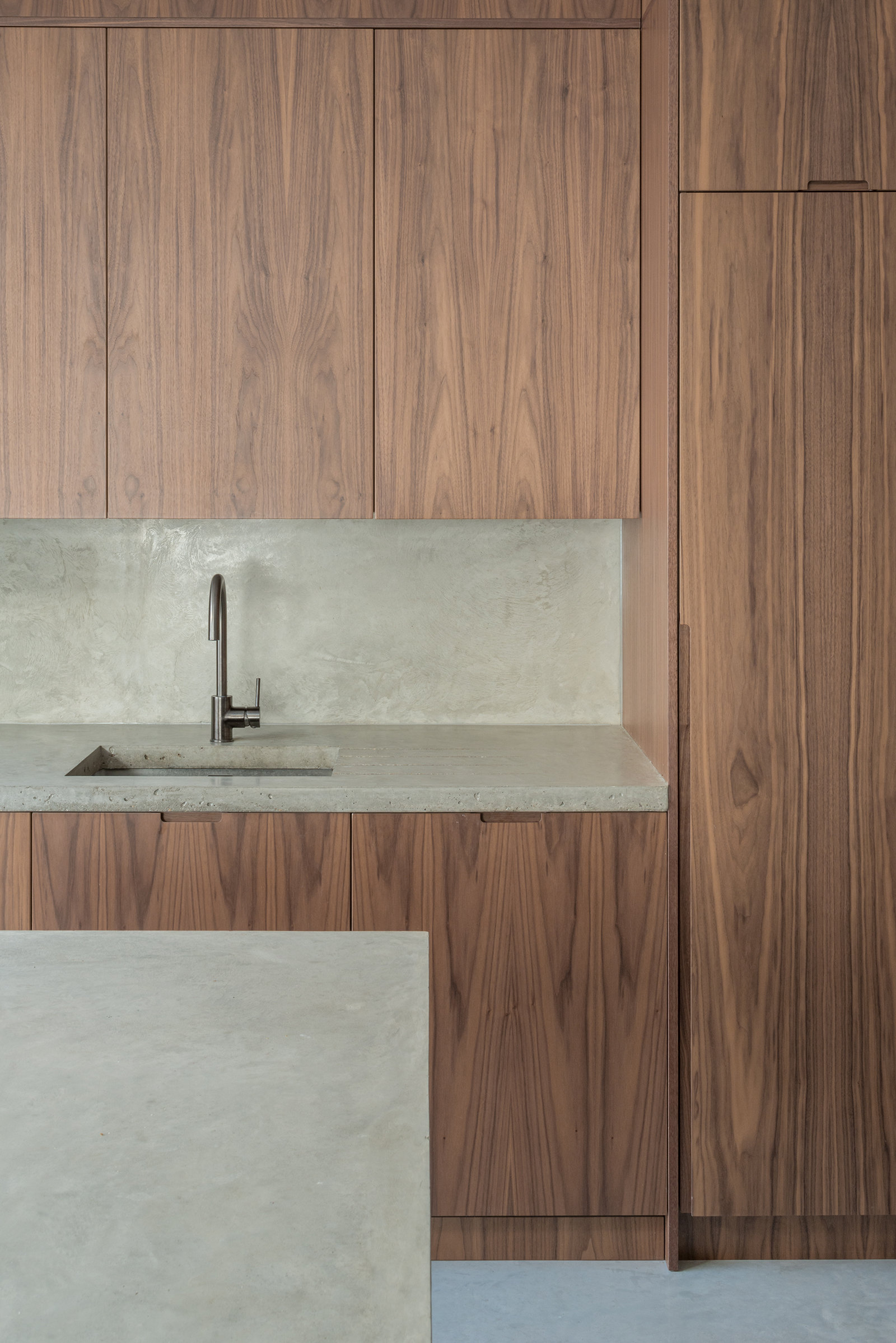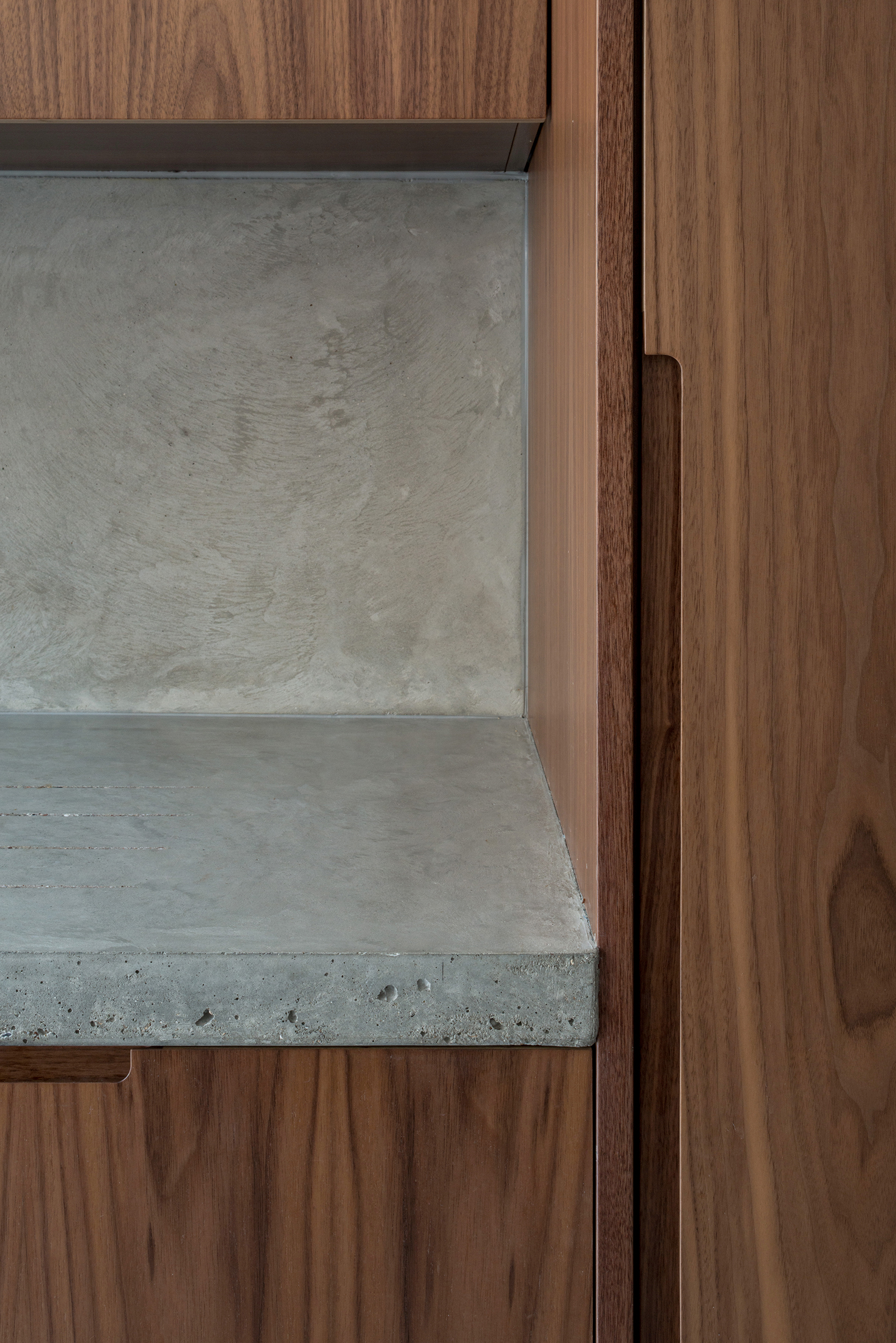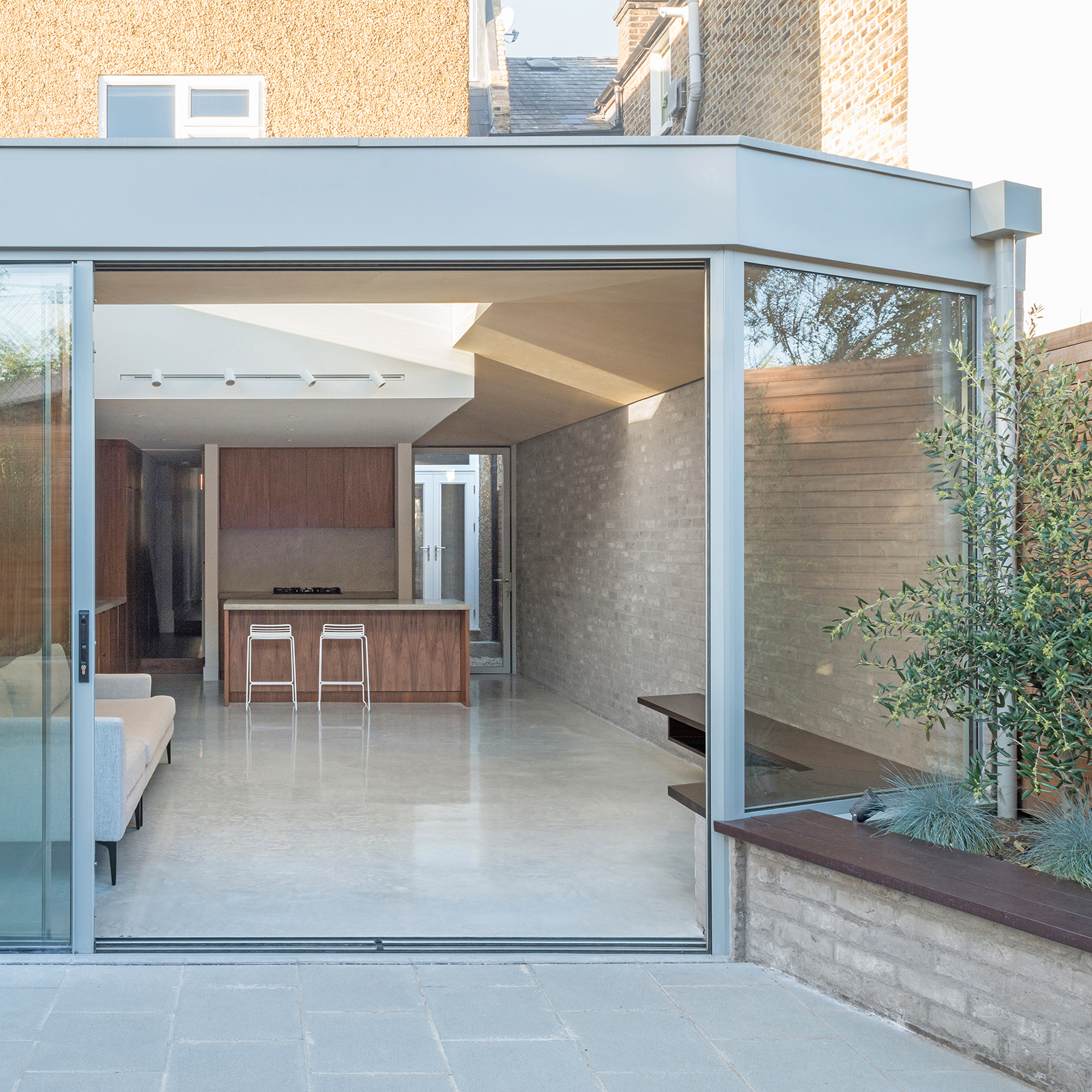Facet House is a minimalist house located in London, United Kingdom, designed by Proctor & Shaw. The rear extension is pushed back as far as reasonable, whilst the flank wall corner is ‘faceted’ minimizing the wall length and retaining subservience to the neighboring house and garden. The roof form is accentuated with a lifted central section whilst the perimeter walls are kept comparatively low. The conceptual form is then emphasized with robust materials. A secretly fixed birch plywood soffit expresses the faceted roof internally.
The surface is kept free from services and is allowed to simply express form and materiality. An oversized roof light is positioned centrally and is pushed up to form the roof apex, creating height and volume, with the plywood soffit folding around it. A seamless polished concrete floor below removes geometry and pattern from the horizontal plane, emphasizing a more elementary contemplation of the soffit form above whilst reflecting light deep in to the plan.
The rear elevation is aluminum thin-framed glass, angled in plan, dissolving the threshold from inside to outside forming an open plan floor plane from home to garden. The brickwork walls reinforce this connection with a flush lime pointed and heavily brushed grey brick to the new internal and external walls. A single piece of iroko joinery follows the facetted wall plan line, flowing from inside to form the external bench seat and encompassing a corner planting bed. Unfinished iroko fence battens line the garden perimeter echoing the dark timber kitchen panelling internally.
The robust architectural materials are paired with American walnut to the custom kitchen cabinetry (designed by Proctor and Shaw) with discreet routed handles in solid walnut spliced into the plywood doors. Counter tops are thick, site-cast polished concrete with unpolished edges to authentically express their construction. Walnut pervades through the home to the stair. A custom shop-sprayed geometric balustrade forms the guarding, taking inspiration from mid-century geometric room dividers. Bathrooms have walnut cabinetry paired with mid-grey large format porcelain tiles.
The project was a deep retrofit. All internal walls, chimney stacks, and finishes were removed back to original brickwork revealing a series of rotten timber structural elements to the front floor and ceiling areas which had to be replaced. All external walls, and the new floor build up were heavily insulated. Internal walls and ceilings were all upgraded to form excellent acoustic barriers with the tandem benefit of increased thermal efficiency for the home owner.
Windows were replaced throughout with double glazed solar control units further improving thermal efficiency. All new heating systems were installed with a two zoned thermostatic control system (bedrooms & living spaces). The newly extended and refurbished open plan living area to the rear benefits from UFH throughout the insulated floor flab. The result is a beautifully crafted home, with abundant space offering a flexible and sustainable future.
Photography by French and Tye
